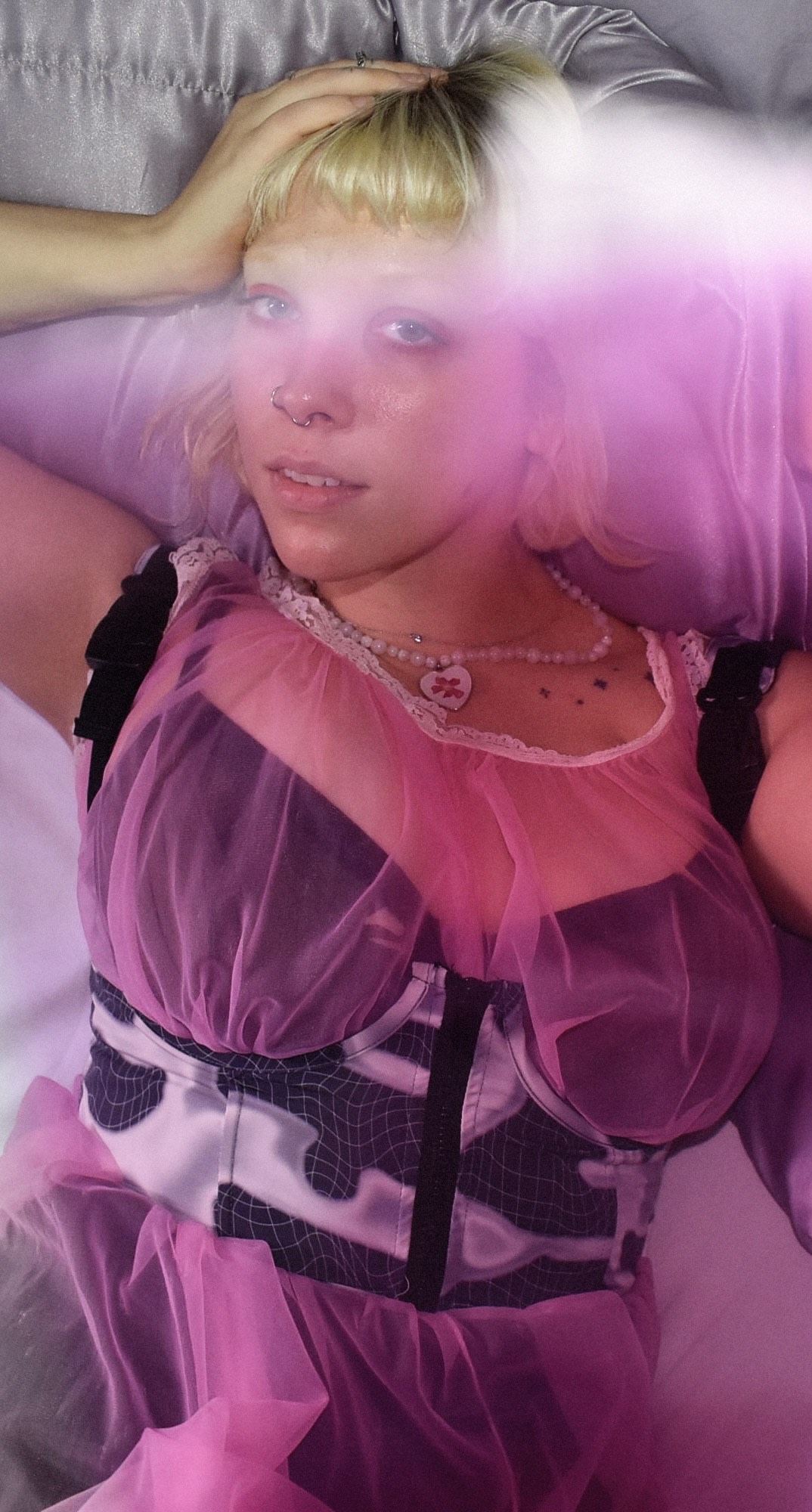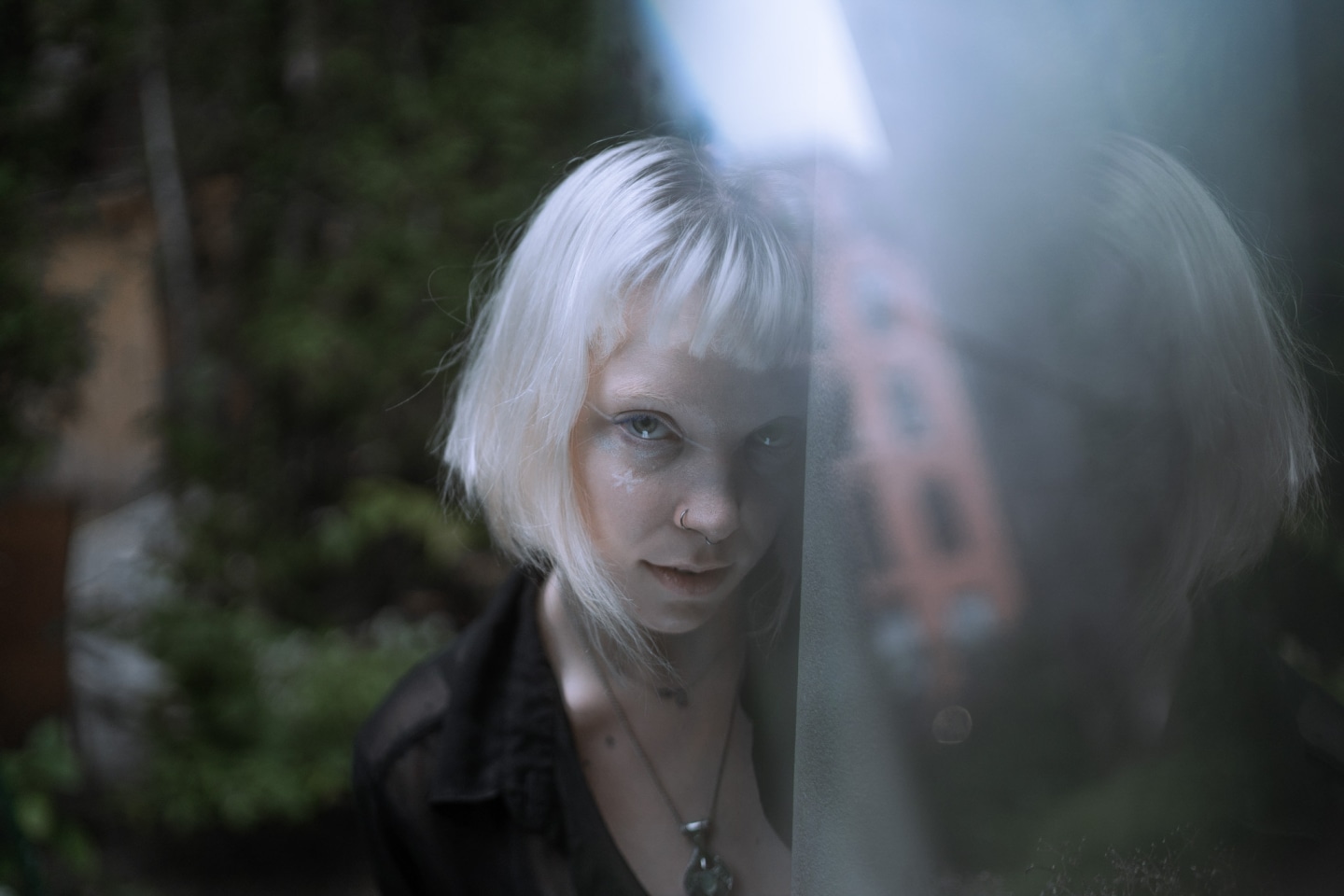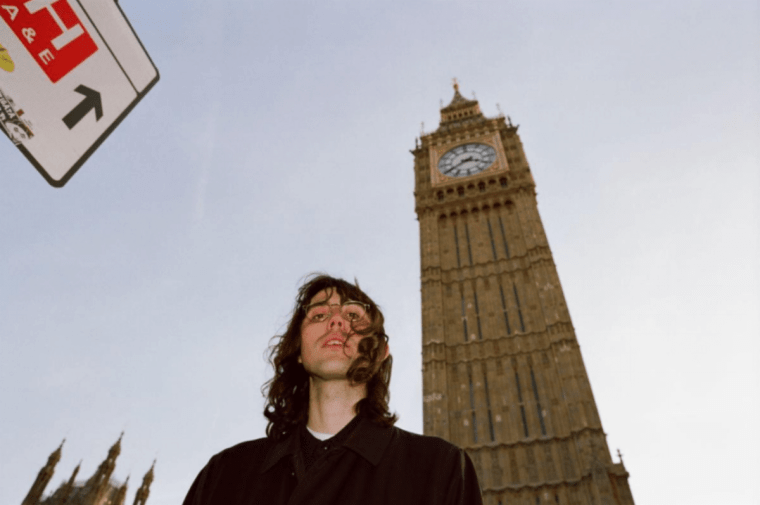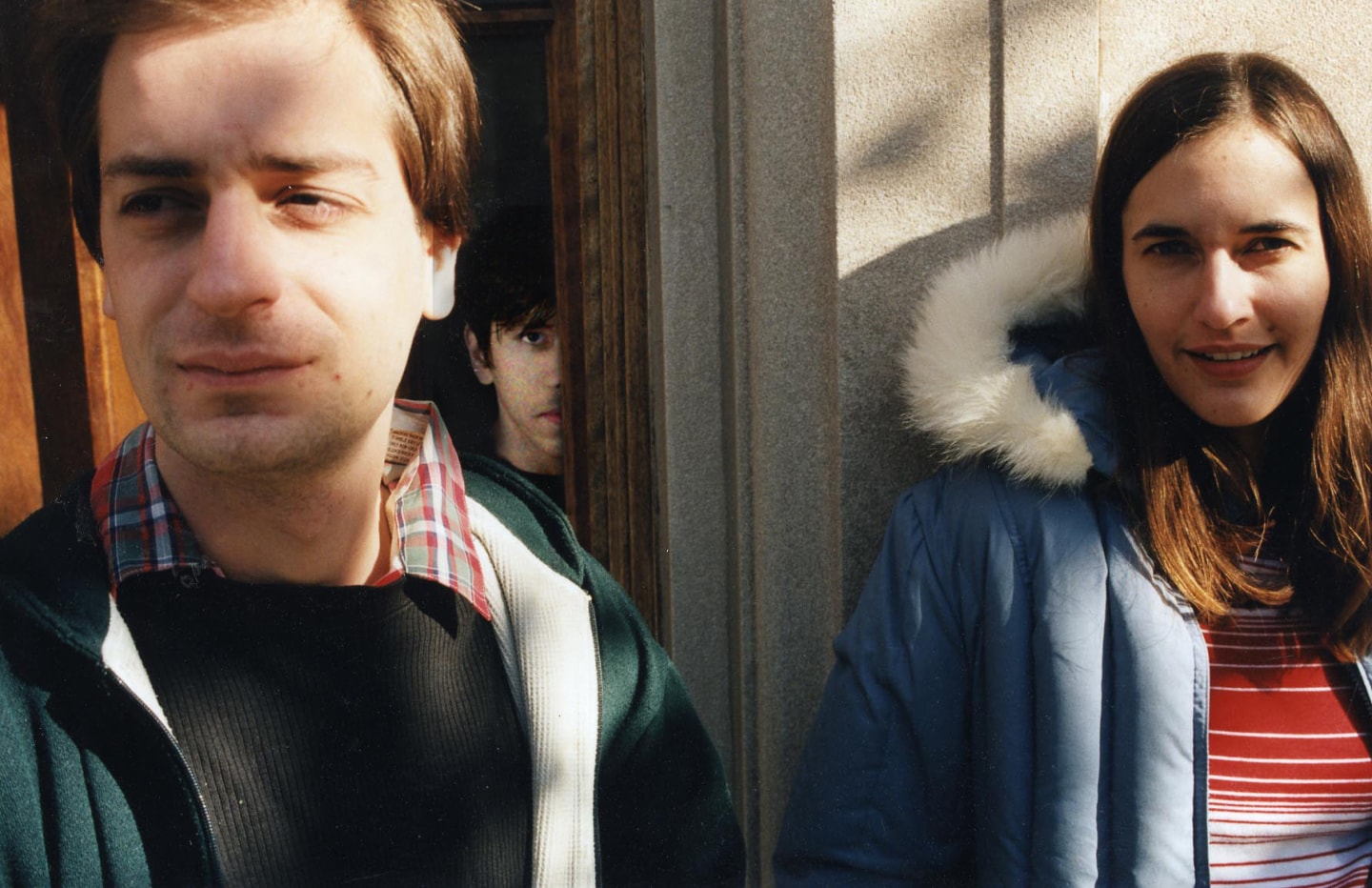Mango Dreamgirl. Photo by Zaffira Medici
The Opener is The FADER’s short-form profile series of casual conversations with exciting new artists.
Mariel Ross has always been a daydreamer. “I’ve been living in a fantasy world in my head for my whole life,” she tells me over tea. “That’s my safe space.”
She’s always been a singer, too. Growing up in a small Central Massachusetts town, she sang backup for a children’s entertainer named SteveSongs and would sing herself to sleep every night. “I shared a room with my sister, and I would belt out songs to put myself to bed,” she remembers. “She hated it. She’d be like, ‘Mariel’s singing again!’”
As Mango Dreamgirl, Ross cracks a window into her fantasy world without opening it all the way. “I’ll be waiting for a sign to open up my door,” she sings over squishy synths, an automated kick drum, and metronome clicks on “Elastic World” from her new EP, I’ve Never Been on the Roof, her voice multi-tracked and coated in Auto-Tune. Then the beat sharpens, the clicks rearrange into tight triplets, and the datamoshed MIDI choir warps around the edges as a new verse begins: “I could give you the key but it’s sewn into my pocket.”
Taken at face value, these coy lyrics combined with Ross’s lush, synth-heavy sound, her moniker, and her Y2K presentation — she wears a unicorn graphic tee with neon pink sleeves to the Bushwick café where we meet — might fit neatly into the aesthetic of the zoomer dream-pop revival. But the songs on Roof are much richer than the ethereal vibe collections one can find anywhere online.
Mango Dreamgirl’s arrangements are rooted in jazz theory but also draw inspiration from 16th-century madrigals and video game soundtracks. When she’s writing a song, she starts by establishing a “sonic palette” with a bare-bones instrumental, then sings wordless melodies to be filled in later. Her favorite stage of the process is creating the vocal harmonies. “I like using my voice as an instrument, making it act as something other than what it is — like a synth, but with a bit more personal flavor,” she says.

Photo by @heclecticphotography
“The way I use Auto-Tune and overlapping vocal lines represents the way my brain processes stuff,” she adds. “I’m always interrupting myself with thoughts.”
Lyrically, too, her chief focus is on world-building. Thematic Easter eggs are littered across the EP’s five tracks: trains to alternate dimensions, intimate objects sewn into garments and kept out of reach. “I want people, for 14-and-a-half minutes, to really settle into the world I’ve created,” she says. “The key is finding a balance between the safe fantasy space and reality.”
Roof is introduced by a brief “overture,” followed by three tracks that immerse the listener in the Mangoverse. It’s the tape’s titular closer that does most of the work of regrounding us on Earth. The roof, she explains, represents a starry-eyed view of a budding relationship, specifically one that dissolved shortly before the project’s first songs were conceived half a decade ago. “Going up on the roof with someone you love, bringing some snacks up — it’s such a romantic thing,” she says. “I’d never done that before, and I romanticized it.”
“I’ve never been on the roof, would you like to climb?” she sings in the chorus before cutting the illusion off as quickly as it materialized. “You never told me the truth, but it’s fine.” Later on, Ross’s cyborg chorus blends into the block organ swell surrounding it as she ends the EP with a gentle, heartbreaking wakeup call: “I know I’m in reality / ’Cause pain is in reality.”




